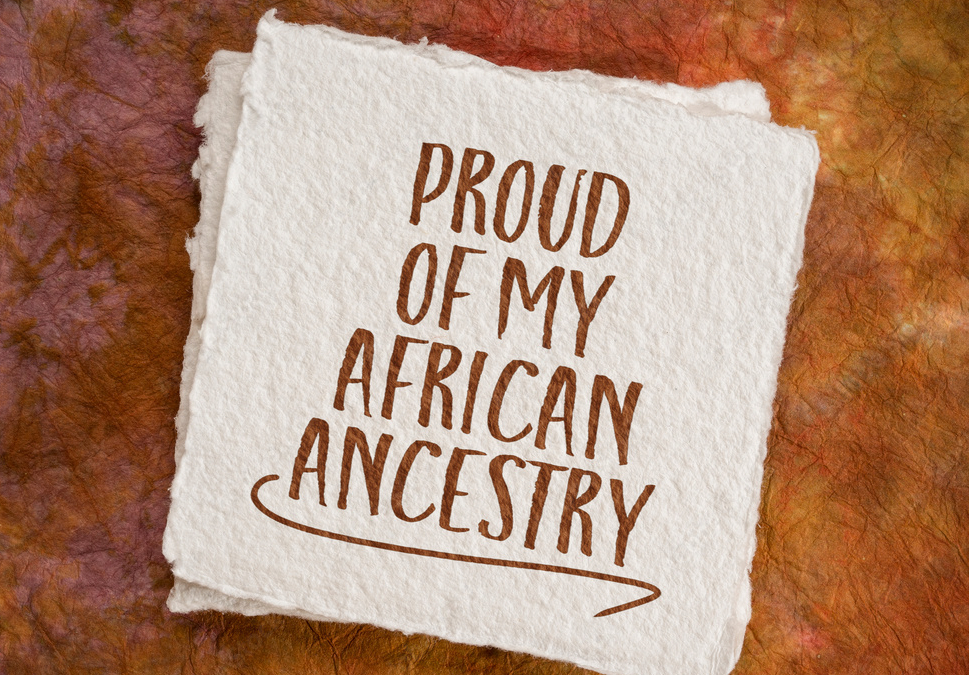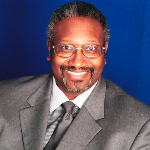A Diaspora View of Africa
Finding my familial link to Africa


By Gregory Simpkins
Since I was a young boy, Africa has fascinated me. Some of my early friends were from Liberia, and I grew up feeling more comfortable with African friends back then than my family or American friends were. Not that they were hostile to Africans, but they did not embrace such relationships as I did.
I studied Africa in college and joined the Africa section of the International Republican Institute as a professional, which allowed me to travel often to African countries and work with political parties and civil society groups and observe elections. My style was to listen more than pontificate, and I learned a lot about the differences between Africans and African-Americans.
When I was in college, my peers in the Black Student Union liked to say they were Africans living in America. I came to realize how wrong that is. We are certainly related by ancestry, but we are more like cousins rather than brothers and sisters. However African we may feel we are, we still think like Americans because we are like the family member that grew up in a different household and learned different ways. Marcus Garvey’s Universal Negro Improvement Association has long encouraged and facilitated acculturation studies to those relocating to the continent for that very reason.
Too many African Americans at least subconsciously believe we have more to offer Africans than they have to offer us, and there are some of us who really do not respect Africans although we supposedly work on their behalf. That came to light in the period in South Africa when apartheid was falling apart, and Nelson Mandela was released from jail after decades of imprisonment. I and many others had demonstrated on behalf of majority rule in South Africa, but some of us actually believed we freed Mandela and other black South Africans.
This led to harsh feelings about us when some of us went to South Africa with an entitled mentality expecting that we were owed something for our contribution to their liberation.
Some of us refuse to understand that African ways are often not our ways, and those differences could not always be classified as one right and the other wrong. However we may feel about South Africa’s racial classifications, colored people in South Africa have been taught that they are not black but comprise a separate group. I recall sitting in a hotel lobby in Johannesburg and witnessing a debate in which two black Americans were unsuccessfully trying to convince a colored desk clerk that she was black.
We do not have to agree with such classifications, but it was disrespectful to argue with someone who has been taught what racial classification to which she belongs without at least trying to see things from her perspective.
My relations with Africans early on, not to mention my natural humility, has allowed me not to act as though I am the light bringer to the dark African world. I have most certainly learned a lot from my African friends and colleagues and continue to do so to this day despite working on African issues for nearly 50 years.
During my many trips to African countries, I have been questioned about my African heritage. In the East, they have asked me if I were Nigerian, and in the West, they have asked me if I were Fulani. I always answered that I was American because I really didn’t know then where my ancestors came from. So, I decided to find out.
I took the maternal DNA test from African Ancestry because it was the one most likely to reveal a link to Africa. The paternal test, which only males can take, more often traces one’s roots back to Europe.
When I was with the Leon H. Sullivan Foundation, we did a DNA reveal at our 2008 Atlanta summit. We tested Martin Luther King’s son and Marcus Garvey’s son and tests revealed links to Africa but also to Ireland, Spain and Portugal. My tests also showed some links to Europe, but what I also found out about myself was that I was descended from the Hausas, Fulanis and Tikar people from the Nigeria-Cameroon region. I assumed that meant that my people came from the Bakassi area disputed by both countries. I used to tell Nigerians I was a Nigerian descendant and tell Cameroonians that I was a Cameroon descendant. At that point, I couldn’t be sure.
In my case, unfortunately, the Fulanis or Hausas are not popular with the Igbo or Yoruba people with whom I have worked. Certainly, they know I never lived in Nigeria and am not responsible for the conflicts that my ancestors’ people have caused. But they have blanched at my ancestral connections anyway.
Finding and acting on African roots
Then I took the Ancestry DNA test, which confirmed that I was more Nigerian than anything else. So, all those years I was asked whether I was Nigerian or Fulani meant that people on the continent saw something in me that I didn’t realize was true. I have been happy to know where my people came from, even though that doesn’t link me to a specific family or village.
European Americans and those from Latin American and Asian countries can link their heritage to a specific country, which means they are not rootless. They just accept that as a fact, but many African Americans have struggled with identifying themselves as African in any specific way.
I know people who have worked on Africa for decades who don’t want to know specifically from where their ancestors come; they say they just want to be identified as African generally. Some such as actor Morgan Freeman, object to being called African American since he said he is not African. Others just want the connection to fit their fantasy.
For example, Oprah Winfrey was linked to the Kpelle people, who lived in western Africa in what’s now Liberia; the Bamileke people in Cameroon and a Bantu-speaking ethnic group in Zambia, but she preferred to be linked to the Zulus of South Africa, which is why she has focused her generosity on that country’s school children.
Meanwhile, actor Isaiah Washington found out he is descended from the Mende people in Sierra Leone, which prompted him to start a foundation and benefit the people of that country beyond the ethnic group to which he is connected. Other celebrities have done the same.
In December 2013, my friend and colleague Wanda Lockridge, a noted social activist in Washington, D.C., led a delegation to Sierra Leone to explore their linkages to the Tikar and Bamileke people. As a result, Wanda, her son and others on the trip were given parcels of land to develop by the Cameroonian government.
I have found meaning in knowing from which country my ancestors came. It is rather like being adopted and then finding out who your birth family was. It wouldn’t negate the family who raised you, but it would answer what for many is an ongoing longing for blood connection.
In my case, unfortunately, the Fulanis or Hausas are not popular with the Igbo or Yoruba people with whom I have worked. Certainly, they know I never lived in Nigeria and am not responsible for the conflicts that my ancestors’ people have caused there. But they have blanched at my ancestral connections anyway. Given how harshly treated Igbos have been by Northerners in Nigeria and continue to be persecuted in some cases, I can understand the reluctance to embrace my heritage, even as it saddens me to be blamed for something I had no part in.
Out of curiosity, I have researched the Hausas, Fulanis and Tikar people. According to National Geographic’s People of the World, there are 25 million Hausas, mostly in Nigeria and Niger. Using caravan routes to the Middle East, they became prodigious traders who used their wealth to build powerful empires.
The Hausa language is related to Arabic, Berber and Hebrew and is spoken throughout Africa as a language of trade. The book states that there are 22 million Fulanis, mostly in Nigeria, Guinea and Senegal, as well as Gambia and as far east as the Nile River, although they are often called by another name. They are predominantly Muslim and have produced many religious leaders and teachers.
Through a series of jihads in the 1800s, the Fulanis took control of Hausa kingdoms, spreading Islam within the Hausa communities, and through intermarriage, the two groups today are widely considered as one in Nigeria. I have been told that my facial features are Fulani, while my broad stature is more Hausa.
As for the Tikar people, according to a 2017 article by Merran McCulloch and Margaret Littlewood, entitled People of the Central Cameroons (Tikar, Bamum and Bamileke. Banem, Bafia and Balom) Western Africa Part IX (Ethnographic Survey of Africa), they are a much smaller ethnic group – an estimated 170,000 mostly in northwestern Cameroon with a smaller number in eastern Nigeria’s Adamawa region.
The Tikar are known as great artists, artisans and storytellers and one of the few African ethnic groups to practice a traditional monotheistic religion, albeit with an extensive spiritual system of ancestral reverence.
So, now when I look at news from the continent, I still take note of developments throughout, but I especially focus on news concerning Nigeria. Since I am no longer a U.S. government employee, perhaps one day I will pursue dual citizenship in Nigeria, although not everyone there might be pleased to add another Hausa-Fulani under the current circumstances of conflict there.
Gregory Simpkins, a longtime specialist in African policy development, is the Principal of 21st Century Solutions. He consults with organizations on African policy issues generally, especially in relating to the U.S. Government. He further acts as a consultant to the African Merchants Association, where he advises the Association in its efforts to stimulate an increase in trade between several hundred African Diaspora small and medium enterprises and their African partners.

